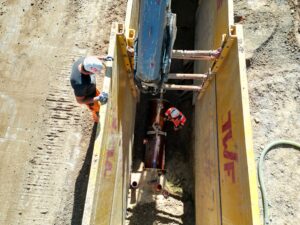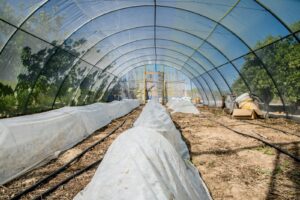Applications will soon be accepted for schemes that return the mammals to river catchments in England.
Environmentalists hope this will trigger a widespread recovery of native beaver species, which have long been absent from Britain’s rivers and lakes. Natural England has now developed a detailed licensing regime and approval process, which prioritises engaging with all stakeholders and delivering support to landowners.
Just 14% of UK rivers are considered to be in a healthy state. Beavers are considered effective wetland custodians, capable of creating dams to manage water release and retention, filtering pollution through natural solutions and creating the perfect conditions for biodiversity to thrive in their habitats.
Across many parts of Britain, flooding now poses a major threat to infrastructure and communities, alongside nature. Having already committed billions to improving mitigation efforts, the reintroduction of beavers could provide significant nature-based support to this work, without having a significant impact on costs.
The process leading up to the return has been ongoing for many years. In Scotland, the first beavers were legally released in 2009 through a partnership with Scottish Wildlife Trust, Zoological Society of Scotland and what has now been renamed Forestry Land Scotland. In England and Wales, Devon Wildlife Trust led a five-year trial assessing the impact of introducing beavers into the River Otter. More recently, a law change in 2022 designated beavers as a native species, opening the path to more widespread projects.
‘Beavers are nature’s aquatic engineers and a force of nature. They have unrivalled capacity to breathe new life into our threatened rivers and wetlands,’ said Pete Burgess, Director of Nature Recovery at Devon Wildlife Trust. ‘Wild beavers play in nature’s recovery and providing multiple benefits that society needs – including significant reduction in the most damaging flood peaks, drought resilience, improved water quality, and carbon sequestration.
‘The beavers in Devon have inspired communities to take action for nature and have boosted tourist visits. I’ve had the privilege of experiencing how wildlife thrives with the return of beavers and wish everyone to have this opportunity in their lives,’ he continued.
Natural England licenses to reintroduce beavers are expected to begin this year, with physical releases likely to start in autumn.
‘Beavers lived alongside us for thousands of years before we hunted them to British extinction a few hundred years ago. Now we’ll be able to see beavers return to our rivers and, in turn, witness the way they create new wetlands and flood protection for our homes and ensure better water quality – at almost no cost to society,’ said Rob Stoneman, Director of Landscape Recovery at The Wildlife Trusts.
‘More than that, we can all experience the magic of seeing beavers back in rivers that will be wilder as a result,’ he continued. ‘Now that the first step has been taken to letting beavers be free, we need to see sufficient advice, support, and funding earmarked for landowners to help them facilitate beavers on their land and manage the resulting changes to landscapes.’
Image: Francesco Ungaro
More on nature, sustainability and climate change:


















